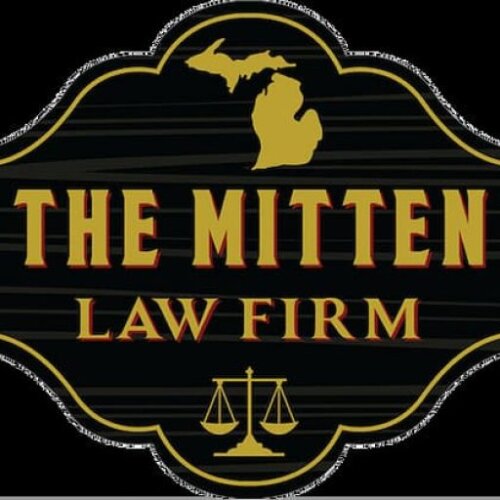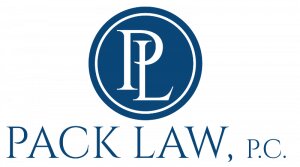Best Bankruptcy & Debt Lawyers in United States
Share your needs with us, get contacted by law firms.
Free. Takes 2 min.
Or refine your search by selecting a city:
List of the best lawyers in United States
United States Bankruptcy & Debt Legal Articles
Browse our 2 legal articles about Bankruptcy & Debt in United States written by expert lawyers.
- Filing Chapter 7 in 2026 United States: New Income Limits
- Chapter 7 gives a near-total discharge of most unsecured debt, but you must pass a "means test" that compares your household income to your state's median income for your family size in 2026. The U.S. Trustee Program updates the state median income numbers at least once a year; you qualify... Read more →
- Debt Collectors in the US: Stop Harassment and Verify Debt
- You have strong federal rights under the Fair Debt Collection Practices Act (FDCPA) and CFPB Regulation F. Collectors cannot harass you, must send a validation notice, and must stop collecting until they verify if you dispute in writing within 30 days. Tell collectors to stop contacting you, then follow up... Read more →
About Bankruptcy & Debt Law in United States
Bankruptcy and debt law in the United States is designed to help individuals and businesses who are unable to pay their debts. This legal framework allows for the restructuring or elimination of debts, giving financially strained entities a chance to regain stability. There are several chapters under the U.S. Bankruptcy Code, including Chapter 7, Chapter 11, and Chapter 13, each with specific guidelines and procedures. While bankruptcy can provide relief, it also comes with consequences, such as a negative impact on credit ratings. Understanding the nuances of these laws can help individuals make informed decisions about managing overwhelming debt.
Why You May Need a Lawyer
Dealing with bankruptcy and debt can be overwhelming and complex, requiring specialized knowledge to navigate effectively. Here are some common situations where legal assistance may be necessary:
- Filing for Bankruptcy: The process involves detailed paperwork, strict deadlines, and adherence to federal and state laws.
- Excessive Debt Load: Understanding the best way to manage large amounts of debt and avoid bankruptcy where possible.
- Debt Collection Practices: Protection from illegal or unethical collection methods by creditors.
- Loan Modifications: Negotiating terms with creditors and understanding your rights under the law.
- Counseling and Planning: Strategic financial planning with the goal of debt reduction and avoidance of future financial distress.
Local Laws Overview
U.S. bankruptcy and debt laws incorporate both federal guidelines and state-specific regulations. Here are some key aspects:
- Exemptions: States have different exemption laws, determining what property you can retain through the bankruptcy process.
- Means Test: This determines eligibility for Chapter 7 bankruptcy based on state median income levels.
- Filing Procedures: States may have specific forms and filing processes in addition to federal requirements.
- Counseling Requirements: Mandatory credit counseling and financial management courses may be required before and after filing.
Frequently Asked Questions
What is bankruptcy?
Bankruptcy is a legal process designed to help individuals or businesses eliminate or restructure debt when they are unable to meet their financial obligations.
How does Chapter 7 differ from Chapter 13 bankruptcy?
Chapter 7 bankruptcy involves liquidating non-exempt assets to pay creditors, offering a "fresh start." Chapter 13 involves creating a repayment plan over three to five years, allowing you to keep your property.
Will filing for bankruptcy eliminate all my debts?
Bankruptcy can discharge many types of unsecured debts, but certain obligations like taxes, student loans, and alimony may not be dischargeable.
How will bankruptcy affect my credit score?
Bankruptcy can significantly lower your credit score and remain on your credit report for up to 10 years, affecting future credit applications.
Can all types of debts be included in a bankruptcy filing?
Not all debts can be included. Secured debts, alimony, child support, and certain taxes may not be discharged.
What are my options if I'm facing significant debt but want to avoid bankruptcy?
Negotiating with creditors, debt consolidation, or working with a nonprofit credit counseling service can offer alternatives to bankruptcy.
How can I stop creditors from harassing me?
Filing for bankruptcy triggers an automatic stay, prohibiting creditors from contacting you for debt collection during the process.
How is my income evaluated in the bankruptcy process?
Your income is assessed through a means test to determine if you qualify for Chapter 7 or need to file for Chapter 13 bankruptcy.
Do I need a lawyer to file for bankruptcy?
While you can file on your own, hiring a lawyer is recommended to ensure accurate filing and full understanding of your rights and options.
What is a debt discharge, and how does it work?
A debt discharge is a court order that releases the debtor from personal liability for certain specific types of debts, effectively wiping them out.
Additional Resources
For more information and support, consider reaching out to these resources:
- The U.S. Bankruptcy Courts - Official government site offering a wealth of information about the bankruptcy process.
- National Foundation for Credit Counseling (NFCC) - Provides access to certified financial counselors.
- Legal Aid Societies - Offer free or low-cost legal assistance for those who qualify.
- Federal Trade Commission (FTC) - Offers consumer advice regarding debt collection and credit.
Next Steps
If you believe legal assistance in bankruptcy and debt is necessary, here are your next steps:
- Assess Your Situation: Gather all relevant documents including debts, income, and assets.
- Consult with a Lawyer: Find a qualified bankruptcy attorney for an initial consultation to discuss your options.
- Credit Counseling: Engage with a certified credit counselor to explore alternatives before pursuing bankruptcy.
- Consider All Options: Understand the implications of bankruptcy on your finances and explore possible alternatives.
- Take Informed Action: Work with your attorney to file required forms and attend mandatory hearings if filing for bankruptcy.
Taking these steps can help ensure you're making the best decision for your financial well-being. Whether you move forward with filing or seek alternative solutions, staying informed and seeking expert advice is crucial.
Lawzana helps you find the best lawyers and law firms in United States through a curated and pre-screened list of qualified legal professionals. Our platform offers rankings and detailed profiles of attorneys and law firms, allowing you to compare based on practice areas, including Bankruptcy & Debt, experience, and client feedback.
Each profile includes a description of the firm's areas of practice, client reviews, team members and partners, year of establishment, spoken languages, office locations, contact information, social media presence, and any published articles or resources. Most firms on our platform speak English and are experienced in both local and international legal matters.
Get a quote from top-rated law firms in United States — quickly, securely, and without unnecessary hassle.
Disclaimer:
The information provided on this page is for general informational purposes only and does not constitute legal advice. While we strive to ensure the accuracy and relevance of the content, legal information may change over time, and interpretations of the law can vary. You should always consult with a qualified legal professional for advice specific to your situation.
We disclaim all liability for actions taken or not taken based on the content of this page. If you believe any information is incorrect or outdated, please contact us, and we will review and update it where appropriate.
Browse bankruptcy & debt law firms by service in United States
United States Attorneys in related practice areas.
Browse bankruptcy & debt law firms by state in United States
Refine your search by selecting a state.
















